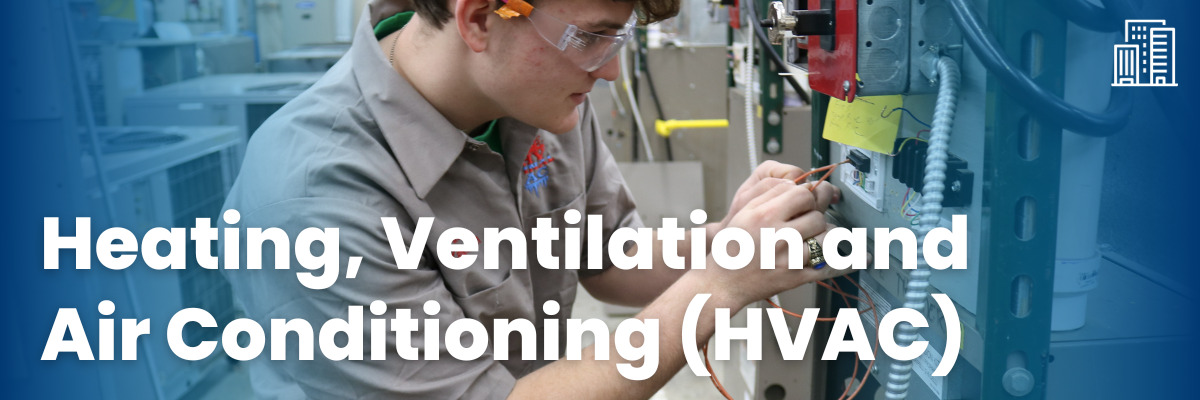
Program Description
Students enrolled in the CTECS Heating, Ventilation and Air Conditioning (HVAC) program will obtain instruction and demonstrate skills and knowledge in construction safety, measuring and blueprint reading, calculations of ductwork & heating systems with an emphasis on both heat loss and heat gain heating and cooling calculations. Students are also instructed on Domestic and Commercial Refrigeration systems, Gas, Oil Heating.
Students’ in the HVAC program receive both on-site and off-campus jobsite learning opportunities simulating real-world applications. Students are trained in the installation and repair of refrigeration, heating, and cooling mechanical systems in both residential homes and commercial buildings. The systems that control indoor climate are constantly evolving to reflect technological advancements and environmental concerns.
In addition, students enrolled in the HVAC program will also obtain instruction in energy efficiency, environmental, renewable energy, as well as energy conservation practices.
A field that anticipates a high demand for skilled mechanics and technicians, the HVAC program ensures that students are skilled in the operation, design, installation, troubleshooting and repair of air conditioning, refrigeration, heating and ventilation equipment.
The demand for HVAC technicians is expected to outpace the supply of workers trained in this demanding but rewarding field. This career area is considered to be “In-Demand, Job Growth” Category as per CT-DOL. HVAC is a licensed trade that requires not only highly technical knowledge and skill, but also a thorough understanding of the Connecticut adopted ICC Mechanical Codes.
Students receive up to 720 hours of instruction upon successful completion of the program. Students may be able to receive 1500 hours towards a career affiliated apprenticeship upon graduation* (*Upon Employer Acceptance).
Students are eligible to participate in Work-Based Learning (WBL) in grades 11 & 12. This program allows companies to hire students during the school day to work as a pre-apprentice in the plumbing & heating industry. Students will receive CT-DOL approved credit for their work experience which is an important pipeline for getting our students into industry.
For more information about our programs please view CTECS Program of Studies.
